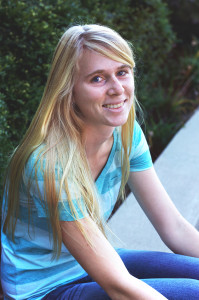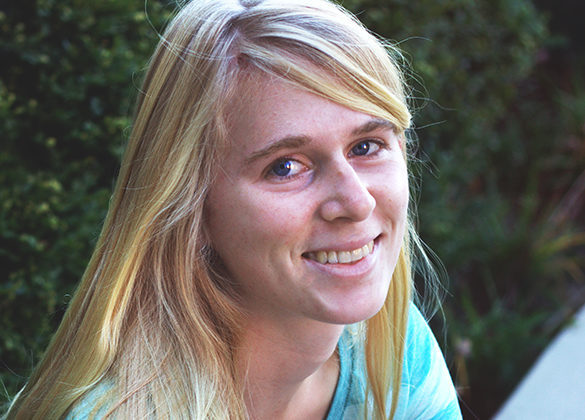
Online Producer
It was just another assignment I had to get done.
I had to pick a journalist to research for my NEWS 121 class, so I chose Christiane Amanpour, an award-winning foreign correspondent for CNN.
After a couple minutes of searching, I landed on her Twitter page and began scrolling through endless tweets and links to stories, until I landed on a video. I don’t know what caused me to stop there, but I am grateful that I did.
It was a video of Amanpour’s interview with Malala Yousufzai, a young girl from Pakistan. I didn’t know who she was but I had grown tired of searching and wanted a break, so I played the video.
Malala was being interviewed because she had won the Nobel Peace Prize for her efforts to bring about equal education for all.
Today in Pakistan, many children, especially girls, do not attend much schooling.
The United Nations Educational, Scientific and Cultural Organization reported in 2012 that the illiteracy rate in Pakistan was 79 percent. Many children, especially from rural towns, do not regularly attend school and many do not get past elementary school.
In 2009, in the Swat Valley of Pakistan where Malala had grown up, the Taliban had taken over and declared TV, music and girls’ education illegal.
A BBC reporter in Pakistan approached Malala’s father, the director of a local school and asked if he could find a female teacher that would talk about her experiences since the takeover. Possibly out of fear of the repercussions, no teachers came forward, but Malala did.
She wrote a diary of her experiences in the Swat Valley under Taliban rule, under the pseudonym Gul Makki. The diary entries were then published on BBC.
While equality in education is an important value, and Malala deserved a Nobel Peace Prize for her work, this is not what struck me about the interview.
What stood out to me was her age. Malala is 16 years old.
Instead of being a normal high school student, Malala is an activist for a cause that has made her a target in her own country.
Two members of the Taliban shot Malala in 2011 while she was on her way to school. They boarded her school bus and threatened the students until they gave Malala up. The men would go on to shoot her twice, once in the head and the other in the neck.
But Malala did not die, and she did not give up her cause.
Since that day, Malala has continued her fight for education in Pakistan. She spoke at the United Nations in 2013 and wrote an autobiography, I Am Malala: The Girl Who Stood Up for Education and Was Shot by the Taliban.
All this got me thinking.
Here I am, complaining about this assignment and all the homework I have to do. I complain about having to go to my classes and having to leave my comfy bed each morning.
I forget how privileged I am.
I forget that I am free to pursue my own path and that I don’t have to live in fear because of my choices.
At the age of 15 and 16, I was free to go to school and to do what I wanted. With every opportunity I could have asked for at my disposal, I was free and even encouraged to go to college to pursue my dream career.
It is because of people like Malala, who dare to defy social norms and fight for equality and the status for women that I am able to do all the things that I take for granted every day.
After watching the video, finishing my assignment seemed less terrible. Waking up for class was even easier. I felt refreshed and ready for classes and work because I had been reminded that such things were merely a privilege and not a right.
Since that day, one thought pops into my head whenever I want to complain about my struggles: If someone felt that his or her education was important enough to die for, maybe I should take mine more seriously.




